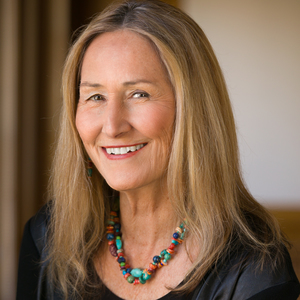An Interview with Hertha D. Sweet Wong

1. What exactly is the role of associate dean of arts and humanities? How are deans chosen?
Currently, there are two Associate Deans of Arts and Humanities. One focuses on designing innovative undergraduate curriculum. My job includes three main areas: 1) reviewing ladder-rank faculty for merit reviews for which their Chair has recommended a higher or lower step increase; 2) reviewing non-Senate (lecturer) for merit reviews and Excellence Reviews; and dealing with lecturer grievances and union issues; and 3) with a committee, overseeing all the Reading and Comprehensive (R&C) courses to be sure that we have enough of them for all students and that we don’t have sections with low enrollments. Basically, I do a lot of behind-the-scene reading, assessing, writing, and meeting.
2. What drew you to the position? Was there something particular you hoped to accomplish?
I like to help people. I’ve learned that I also like to work on structures, processes, and policies that help the university function more smoothly and equitably. The two Associate Deans before me, both women, were wonderful models of what I call compassionate rigor. I wanted to carry that on.
3. How did you get involved in the administrative side of the university? What was your path to your current position like?
I had no aspirations to become an administrator. I was happy being a faculty member. Like many faculty, I was somewhat suspicious of administrators. But I became more and more involved in administrative roles in the English Department, serving an extra-long stint as the Director of Undergraduate Education and a short time as Faculty Equity Advisor. I understood that there is important work to be done in shaping programs, curriculum, and policies. I was invited to become the Chair of the Department of Art Practice (they had a history of having outside Chairs) where I served two terms, six years. After that I was invited to serve as Associate Dean of Art and Humanities.
4. What do you find most rewarding about your work as a dean? Are there any accomplishments that you are particularly proud of?
I like working with the Dean, Associate Dean, the department Chairs, and the amazingly smart and dedicated staff who make the flow of Berkeley’s elaborate review processes possible. Most of my “accomplishments” have to do with invisible work: problem solving at the departmental level or mediating conflict within a department or between the university and the union. I’m proud of advocating for lecturers to be certain the review process is fair and for working with chairs to create new policies that enhance equity and transparency.
5. During your time in the role, how has the job evolved?
Faculty reviews go on throughout most of the year so that remains the unchanging center of the job. I’m not sure the job has evolved, but what I do has so that when I see a need (or an issue is brought to my attention), I work with Chairs and staff to solve problems. Sometimes that involves generating better policy; other times, it involves mediating.
6. How does your work as an associate dean intersect and how does it differ from your work as a professor?
While there is a great deal of reading, evaluating, and writing in Associate Dean work, it is not the same as the reading, evaluating, and writing I do as a faculty member. For the most part, I don’t think that my Associate Dean work intersects much with my own writing and teaching. They are entirely different modes of expression.
7. What advice would you give to undergraduate women who are interested in the administrative side of higher education?
I think the appropriate reason to go into administration is from a desire to make something (e.g., experiences, processes, functionality) better. I see it as a mode of service. I would encourage undergraduate women who are interested in higher education administration, to get involved early (as a volunteer, intern, or committee member) in organizations or institutions where they can both contribute their insights and gain experience. I think having a vision that you can articulate concisely and that will inspire others is important. In other words, why do want to go into administration? What do you hope to accomplish? If you aspire to be a Dean of a Division, you’ll want to have a capacious understanding of the current (and historical) issues affecting higher education, to place your institution’s needs in relation to a national (sometimes global) conversation. If you’re working, like me, on a smaller scale with a focus on specific processes (but still connected to the larger system), you’ll want to be informed about how those processes are linked to the big issues.
